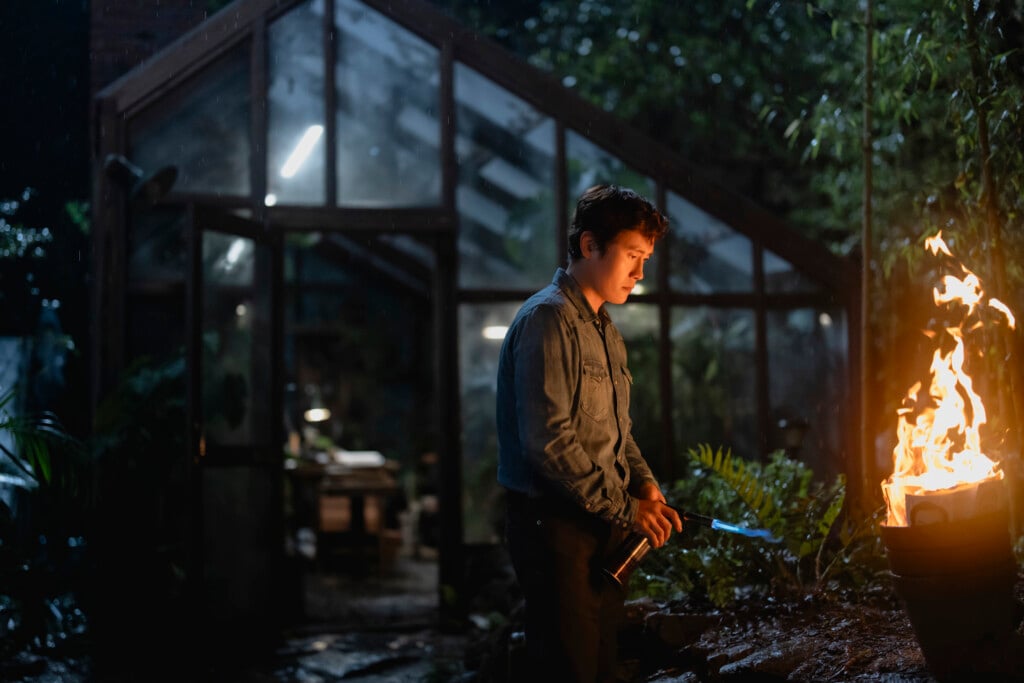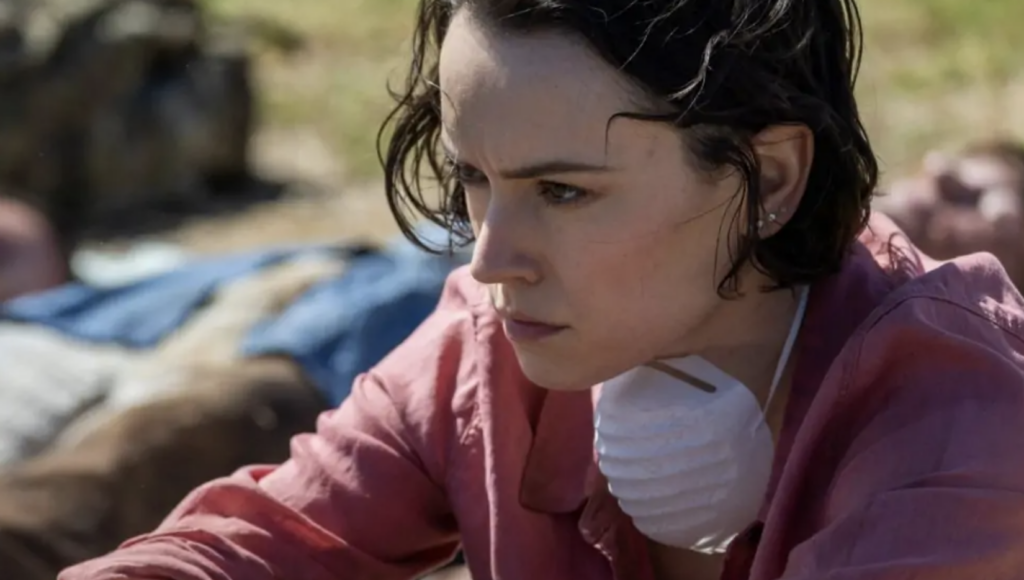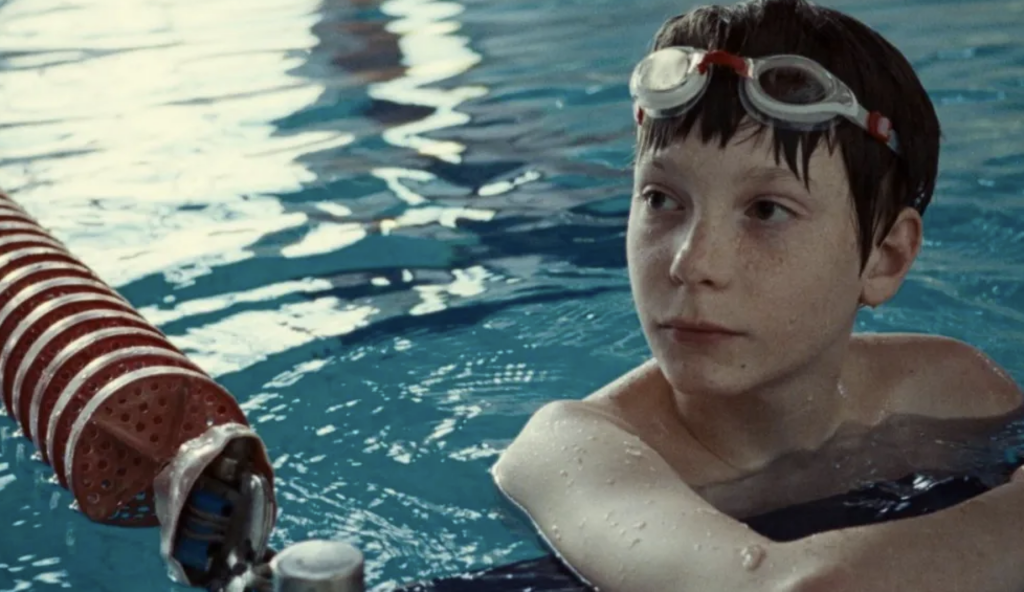Etheria Film Festival wishes it didn’t have to exist. Until more opportunities arise for female filmmakers, they’ll carry the torch.
“Our goal is to be obsolete,” Stacy Hammon told the group of assembled filmmakers at Wolfepack BBQ on Friday night.
That’s not typically the kind of statement you expect to hear from a film festival organizer, but Hammon means it. She’s the Director and Co-Founder—alongside Director of Programming Heidi Honeycutt—of Etheria Film Festival—a one-night showcase of horror, science fiction, fantasy, action, thriller, and dark comedy short films from emerging female directors.
Hammon has gathered a number of the featured filmmakers together ahead of the festival’s Saturday night showcase at Screenland Armour Theatre for a chance to get to know each other in the most Kansas City way possible: chowing down on some barbeque.
“I want to get to a place where we don’t need this festival anymore,” Hammon says. “A place where women can not only succeed, but are allowed to fail at the same rate as men.”
That’s probably not going to happen any time soon, according to the data. The most recent report from USC’s Annenberg Inclusion Initiative—a think tank that examines representation in front of and behind the camera—shows that last year, only 12 of the 100 top-grossing films in 2023 were directed by women. That number is up a whopping three from 2022, but down from 2020’s all-time high of 15.
According to the Initiative, the ratio of men to women directors on top-grossing films over the last 17 years was nearly 10 to one. Barbie may have broken the box office record for female-directed movies, but that wasn’t enough to keep Greta Gerwig from being overlooked for best director by the Academy Awards for that year.
Of course, that story is also a familiar one for filmmakers who work in genre spaces.
“I was sold a crock of shit in film school, this ‘unicorn’ tale that women don’t make genre movies because they’re not into it,” filmmaker and cinematographer Elle Schneider says. “The reason there aren’t a ton of women in genre filmmaking is because they’re not trusted to do it. The pipeline for women filmmakers has been traditional dramas and Sundance-style films. You don’t get James Gunns and David Lynches that way.”
This, as I hear from everyone over the weekend—filmmakers, organizers, and supporters alike—is Etheria’s primary reason for being. Formerly housed in L.A. before making the move to KC’s Screenland, the festival’s shorts are judged by an impressive jury of filmmakers and producers—this year’s crew included Hocus Pocus Director Mick Garris and powerhouse producer Gale Anne Hurd. These are the people in a position to potentially help smaller filmmakers get jobs down the line.
Additionally, the shorts are available to stream on Shudder until August 15, where viewers can vote for an audience award. A number of featured shorts have since gone on to become successful features, including Prano Bailey-Bond’s Censor and Jill Gevargizian’s The Stylist.
Gevargizian’s hair scare thriller is also an example of the enduring community atmosphere Etheria cultivates among its participants: One of this year’s featured shorts, MLM, was directed and co-written by Stylist star Brea Grant. Grant’s short won the jury award at the festival on July 6.
“I used to come to this when it was in LA,” Grant says. “The programming is really good, it’s always surprising what you find, and they do such a good job of promoting it.”
Grant’s bold and funny short—now planned as one entry in a forthcoming anthology film—follows a would-be fashion legging saleswoman working for a LuLaRoe-esque company. When she fails to meet her sales quota, she’s hit with an escalating series of absurd supernatural consequences. It features the kind of strange and hyper-specific comedy writing that makes for instantly memorable dialogue and endlessly surprising visual payoffs.
The movie features horror icon Barbara Crampton in a memorable cameo as the company’s founder. “I’d worked with Barbara as an actor before,” Grant says. “I called her and said, ‘I need you for half a day,’ and I gave her a teleprompter. What you see in the movie is really only the beginning—She had way wilder shit that didn’t make it in.”
Grant says she shares Schneider’s perspective on women working in genre film, though she notes the scene is slowly starting to change.
“Genre film has historically had fewer female filmmakers, though now it’s swinging back the other way. I wish we didn’t need a festival like Etheria to put our work out there, but we need more and more spaces,” she says.
Another Etheria alum is director Axelle Carolyn—this year’s recipient of the festival’s Inspiration Award. Carolyn—who’s directed episodes of The Haunting of Bly Manor, Creepshow, American Horror Story, and The Midnight Club, in addition to shorts and features— is also one of the many female filmmakers who got additional exposure from Etheria—the festival showed both her early shorts and her first feature, 2013’s Soulmate. “It’s surreal to get an award like this,” she says. “I’ve had the support of Etheria literally my whole career.”
Carolyn also notes the pattern of connection and inclusion at the festival that’s already proven true through numerous conversations with the filmmakers and festival organizers. “It’s great knowing that you aren’t alone out there. You aren’t the only one struggling with the same issues,” she says. “We’re still so far from 50/50 parity in the industry. It feels like we’re turning against the tide a little, so it’s so important to talk to others who are facing and overcoming the same obstacles in their careers, and to feel supported by other people.”
Filmmaker Sofie Somoroff, who came to the festival representing both her own short Ride Baby Ride and the surreal horror-comedy Make Me a Pizza, which she produced, is, herself, no stranger to seeming restrictions about the kinds of movies women filmmakers are “expected” to make. Those themes are present in Ride Baby Ride, where a young woman is trying to restore a ‘78 Camaro, and faces objectification from both the creeps who sell her the car and the vehicle itself. It’s a pulpy, darkly funny story about defying expectations and coming out on top.
“I think you can and should be able to take an idea to its extreme. You should lean into what’s gross and uncomfortable,” Somoroff says. “I like horror because you know immediately if something’s working with an audience.”
Annie Girard—the co-writer and director (with Diana Wright) of the Etheria short 1 in the Chamber—is used to that kind of payoff as well. She’s also a veteran of the cult-favorite comedy filmmaking collective Channel 101, which was co-created by Community and Rick and Morty’s Dan Harmon. Girard drew on her experience as a mom for the Kill Bill-style comic short about a pair of hitwomen who encounter some awkward childproofed obstacles during a fight.
“This was my first time working with a stunt coordinator and stunt doubles,” Girard says.
For Girard and 1 in the Chamber producer Becca Flinn-White—both moms—the act of filmmaking itself, not just the career development aspects, is community-focused by necessity.
“Making movies for us takes everyone,” Flinn-White says. “It’s like, ‘I’ll take your kids and we’ll go to a play space while you go shoot.’”
Etheria is Girard’s first festival experience, and she says it’s spoiled her for future ones. “It’s been amazing,” she says. “Everyone is so friendly, and it’s really focused on art. Is this festival just heaven?”









